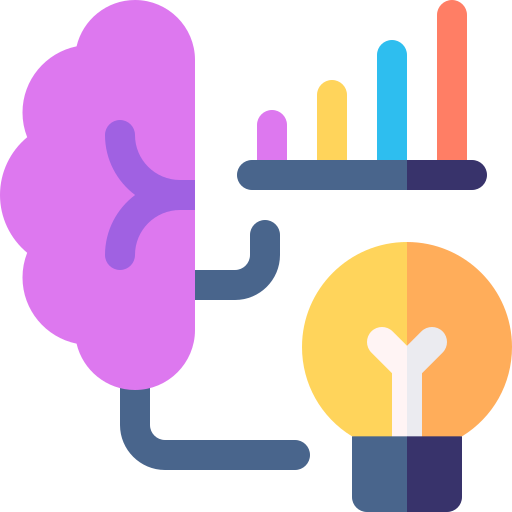The technology sector has become a powerful force, reshaping how we live and work. In recent years, tech startups have led the charge, bringing forward creative solutions to streamline processes, solve complex problems, and enhance daily experiences.
From cloud-based platforms and AI-driven tools to the Internet of Things (IoT), technology’s reach now spans multiple industries, influencing markets worldwide and setting new standards for innovation and efficiency.
This guide from Launchroad aims to give you a clear view of the key areas within the technology (tech) startup ecosystem, highlighting areas ripe with opportunity, the unique challenges these startups face, and the exciting innovations shaping their future.
For entrepreneurs, investors, and tech enthusiasts alike, understanding these trends and growth areas is crucial to recognizing the potential—and navigating the pitfalls—of today’s fast-evolving tech landscape. Let’s dive into the five primary areas making waves in the tech startup world.
Table of Contents
 Overview of the Technology Startup Sector
Overview of the Technology Startup Sector
Tech startups are constantly finding ways to do things more efficiently, whether by developing tools that streamline operations or by creating services that connect people in fresh, impactful ways. This focus on innovation has helped tech startups bring new ideas to life, often creating entirely new markets in the process.
These startups are not only limited to traditional tech spaces—they’re transforming industries across the board.
🍏 In healthcare, for example, tech startups are developing tools for everything from remote patient monitoring to improved diagnostics.
💰 In finance, they’re behind the rise of mobile banking and digital payment systems, making it easier for people to manage their money and for businesses to operate.
👩🏻🏫 In education, startups have made online learning more accessible and flexible, and in retail, they’ve driven the growth of e-commerce and personalized shopping experiences. Each of these innovations is helping to shape industries and make them more adaptable to modern needs.
The growth of tech startups isn’t just noticeable in products and services; it’s also apparent in the financial world. Investment in the tech sector has skyrocketed, with investors recognizing the potential for growth and the high demand for digital solutions. As a result, tech startups have become one of the fastest-growing sectors globally, attracting billions in venture capital and other forms of funding each year.
With this influx of resources, tech startups are poised to continue their upward trajectory, fueling further advancements that will reach across industries and reshape how we work, learn, and interact.
Do You Have a Destination In Mind
Launchroad can help you find the perfect country for your startup. Schedule a free demo today.
Key Sub-Sectors in Technology (Tech)
 A. Software as a Service (SaaS)
A. Software as a Service (SaaS)
Software as a Service, or SaaS, is a model that delivers software applications over the Internet, allowing users to access them from any device without installing or maintaining them locally.
This cloud-based approach has become increasingly popular among businesses and individuals, allowing convenient access to essential tools and services. With SaaS, users can benefit from regular updates and new features without the hassle of manual installations, making it a significant advancement in how software is consumed and managed.
Market Trends 📈
The SaaS landscape rapidly evolves, with several notable trends shaping its future. Subscription-based models have gained traction, providing users with flexibility and cost-effectiveness as they only pay for what they use.
Additionally, the rise of remote work solutions has increased the demand for accessible software that teams can use from anywhere, fueling growth in this sector. As businesses seek adaptable and scalable software options, SaaS solutions are well-positioned to meet these needs.
Opportunities ✔️
There are numerous opportunities within the SaaS market, especially in niche areas tailored to specific industries. For instance, legal tech and health tech are emerging fields where SaaS solutions can streamline operations and improve service delivery.
Furthermore, innovations in low-code and no-code platforms are enabling users with little to no technical expertise to create custom applications, making software development more accessible than ever. This democratization of technology is opening doors for many new ideas and solutions.
Challenges ❌
Despite its potential, the SaaS market is not without its challenges. One of the biggest hurdles is customer retention; with so many options available, keeping clients engaged and satisfied can be difficult.
Additionally, the competitive landscape is becoming increasingly crowded, with startups and established players alike vying for attention.
Cybersecurity is another concern, as cloud-based solutions must safeguard sensitive data from cyber threats. Addressing these challenges will be crucial for long-term success as reliance on SaaS grows.
 B. Artificial Intelligence & Machine Learning
B. Artificial Intelligence & Machine Learning
Artificial Intelligence (AI) and Machine Learning (ML) refer to technologies that allow computers to analyze large amounts of data, learn from it, and make decisions based on that information. These technologies are revolutionizing industries by automating repetitive tasks and providing insights that enhance decision-making. In simple terms, AI and ML help organizations work smarter, not harder, by processing information at speeds and accuracies that humans alone cannot achieve. This capability is becoming increasingly vital in our data-driven world.
Market Trends 📈
Significant advancements have been made in automation technologies that streamline business processes, reducing the time and effort required for routine tasks. Predictive analytics, which uses historical data to forecast future outcomes, is gaining traction across various sectors, enabling businesses to make more informed decisions.
Additionally, the demand for personalized services is rising; consumers are looking for tailored experiences, and AI can help companies deliver precisely that by analyzing customer behavior and preferences.
Opportunities ✔️
AI and ML present exciting opportunities for growth and innovation in multiple industries. In healthcare, for instance, these technologies can enhance diagnostics and patient care through advanced data analysis and predictive modeling.
In finance, AI is improving risk assessment and fraud detection, while in retail, businesses are leveraging AI for personalized marketing strategies and inventory management.
Furthermore, the development of autonomous systems, such as self-driving cars and drones, is creating new possibilities for automation and efficiency. The versatility of AI and ML means that almost limitless applications are waiting to be explored.
Challenges ❌
While AI and ML have immense potential, some challenges must be addressed. Ethical concerns are at the forefront, particularly regarding bias in algorithms and the potential for job displacement as automation increases.
Data privacy issues are also critical, as companies must navigate regulations and protect sensitive information. Additionally, the cost of developing AI solutions and processing large datasets can be prohibitive for smaller businesses.
Tackling these challenges will be essential to ensure the responsible and equitable use of AI technologies.
📌 Must Read: Minimum Viable Product (MVP): All You Need to Know 👈
 C. Blockchain and Cryptocurrency
C. Blockchain and Cryptocurrency
Blockchain is a decentralized technology that enables secure and transparent data transactions across a network. Think of it as a digital ledger where every transaction is recorded in a way that is tamper-proof and visible to all participants.
This technology is most commonly associated with cryptocurrencies, like Bitcoin, but its potential goes far beyond just digital currencies.
Blockchain can enhance trust and security in various applications, making it increasingly relevant in today’s digital landscape.
Market Trends 📈
The blockchain market is experiencing significant growth, particularly in decentralized finance (DeFi). DeFi aims to create an open financial system without traditional banks, enabling users to lend, borrow, and trade directly with one another.
Additionally, the adoption of digital currencies is on the rise, with more businesses beginning to accept them as a form of payment.
Beyond finance, new use cases for blockchain are emerging in areas like healthcare, real estate, and even voting systems, where transparency and security are paramount.
Opportunities ✔️
Blockchain technology presents vast opportunities. In finance, it offers the potential for faster and more cost-effective transactions, reducing the need for intermediaries.
Supply chain transparency is another exciting application. It allows companies to track the movement of goods in real-time, ensuring authenticity and ethical sourcing.
Secure identity management is becoming increasingly important in a digital world where data breaches are common. Blockchain can give individuals more control over their personal information and offer a safer way to verify identities online.
Challenges ❌
Despite its promise, blockchain faces several challenges that need to be addressed. Regulatory uncertainty is a major concern, as governments around the world are still figuring out how to manage cryptocurrencies and blockchain technology.
Energy consumption is another issue, particularly for cryptocurrencies like Bitcoin, which require significant computational power. Also, scalability is a challenge, as many blockchain networks struggle to handle a large number of transactions quickly and efficiently. Overcoming these hurdles will be key to unlocking blockchain’s full potential.
 D. Cybersecurity
D. Cybersecurity
Cybersecurity is more important than ever. As businesses and individuals increasingly rely on technology for everything from banking to communication, the risks associated with cyber threats continue to grow.
Cybersecurity serves as a protective barrier that safeguards sensitive data, ensures privacy, and keeps networks secure from attacks. Without strong cybersecurity measures, organizations face the risk of data breaches, financial loss, and damage to their reputations.
Market Trends 📈
One significant trend is the development of cloud security, as more companies shift their operations to the cloud. This shift requires new security measures to protect data stored online.
Another trend is the adoption of zero-trust security models, which operate on the principle of “never trust, always verify.” This approach ensures that every user and device is authenticated before accessing sensitive information.
AI-driven threat detection is gaining traction, helping organizations identify and respond to threats more quickly and efficiently.
Opportunities ✔️
As more businesses embrace digital transformation and increase their online activities, the need for comprehensive security measures has never been greater. This trend presents numerous opportunities for cybersecurity providers to create innovative solutions tailored to specific industry needs.
From healthcare to finance and beyond, organizations are looking for ways to protect their data and maintain compliance with regulations, making cybersecurity a high priority.
Challenges ❌
However, the journey to strong cybersecurity is not without its challenges. Cyber threats constantly consist of attackers developing new techniques to breach security systems. Keeping up with these threats requires ongoing investment and expertise.
Organizations must also navigate complex regulatory requirements that vary by industry and region, adding another layer of complexity.
The cost of developing comprehensive security solutions can also be a barrier, particularly for smaller businesses that may lack the resources to implement advanced cybersecurity measures.
 E. Internet of Things (IoT)
E. Internet of Things (IoT)
The Internet of Things (IoT) refers to the network of physical devices that are connected to the Internet, allowing them to communicate and exchange data. This technology allows everyday objects—like your refrigerator, thermostat, or even farming equipment—to be linked online, enabling smarter and more efficient ways of living and working.
By collecting and sharing information, IoT devices can help us monitor our homes, optimize industry processes, and improve overall quality of life.
Market Trends 📈
Several exciting trends are emerging within the IoT space. One of the most visible is the rise of smart homes, where devices like smart speakers, lighting, and security systems work together to enhance convenience and security.
In the industrial sector, the Industrial Internet of Things (IIoT) is gaining traction, connecting machinery and equipment to improve efficiency and productivity.
Another key trend is edge computing, which involves processing data closer to where it’s generated rather than relying solely on centralized data centers. This approach reduces latency and improves response times, making IoT applications even more effective.
Opportunities ✔️
The potential applications of IoT are vast, offering numerous opportunities across various industries. In healthcare, IoT devices can monitor patients remotely, allowing for real-time health tracking and reducing the need for hospital visits.
IoT technology can optimize irrigation and crop management in agriculture, leading to more efficient farming practices and better yields.
Manufacturing is also benefiting from IoT, as connected machines can provide valuable insights into production processes, helping companies reduce downtime and increase output.
IoT’s versatility means that it can be tailored to meet the specific needs of different sectors, driving innovation and efficiency.
Challenges ❌
Security and privacy risks are major concerns, as connecting devices to the internet opens up potential vulnerabilities that cybercriminals can exploit. Ensuring that data is kept secure and private is essential for user trust.
Interoperability is another issue, as not all IoT devices are designed to work seamlessly with one another, creating challenges in integration and management. Additionally, the high costs associated with implementing IoT solutions can deter some businesses from adopting this technology, especially smaller organizations with limited budgets.
Do You Have a Destination In Mind
Launchroad can help you find the perfect country for your startup. Schedule a free demo today.
 Technology Startup Success Stories
Technology Startup Success Stories
Software as a Service (SaaS): Slack
 One of the standout success stories in the SaaS space is Slack, a communication platform that has transformed team collaboration. Founded in 2013, Slack began as an internal tool for a gaming company before pivoting to focus on team communication.
One of the standout success stories in the SaaS space is Slack, a communication platform that has transformed team collaboration. Founded in 2013, Slack began as an internal tool for a gaming company before pivoting to focus on team communication.
Its innovative solution allows users to create channels for different projects, share files, and integrate with other tools, making collaboration seamless. Over the years, Slack has experienced tremendous growth, attracting millions of users and becoming a go-to platform for businesses of all sizes.
Its impact is evident in how it has changed workplace communication, fostering a more connected and efficient work environment.
Artificial Intelligence (AI) and Machine Learning (ML): UiPath
 UiPath has emerged as a leader in the AI and ML sector with its automation software. Founded in 2005, the company specializes in robotic process automation (RPA), helping businesses automate repetitive tasks that consume valuable time and resources.
UiPath has emerged as a leader in the AI and ML sector with its automation software. Founded in 2005, the company specializes in robotic process automation (RPA), helping businesses automate repetitive tasks that consume valuable time and resources.
UiPath’s innovative solutions allow companies to streamline operations and increase productivity without sacrificing quality. The company’s growth has been remarkable, achieving a valuation of over $35 billion in just a few years. UiPath has significantly impacted various industries, empowering organizations to work smarter and focus on more strategic initiatives.
Blockchain and Cryptocurrency: Coinbase
![]() Coinbase is a prominent player in the cryptocurrency space, providing a user-friendly platform for buying, selling, and storing digital currencies. Founded in 2012, Coinbase started as a simple wallet service but quickly evolved into a comprehensive exchange.
Coinbase is a prominent player in the cryptocurrency space, providing a user-friendly platform for buying, selling, and storing digital currencies. Founded in 2012, Coinbase started as a simple wallet service but quickly evolved into a comprehensive exchange.
Its innovative approach has made cryptocurrency accessible to the average person, helping to drive mainstream adoption. As the demand for digital currencies has surged, Coinbase has grown rapidly, reaching over 68 million verified users worldwide.
The company’s impact is substantial, as it has facilitated countless transactions and contributed to the broader conversation about the future of finance.
Cybersecurity: CrowdStrike
 CrowdStrike has made a name for itself in the cybersecurity sector with its cloud-native platform designed to prevent cyber threats. Founded in 2011, the company uses AI to detect and respond to potential security breaches in real-time.
CrowdStrike has made a name for itself in the cybersecurity sector with its cloud-native platform designed to prevent cyber threats. Founded in 2011, the company uses AI to detect and respond to potential security breaches in real-time.
CrowdStrike’s solutions have helped businesses protect their sensitive data from increasingly sophisticated attacks. Its growth has been impressive, with the company becoming publicly traded in 2019 and achieving a billion-dollar valuation.
CrowdStrike’s impact extends across industries, providing organizations with the tools they need to defend against cyber threats and safeguard their operations.
Internet of Things (IoT): Nest
![]() Nest Labs, founded in 2010, is a pioneering company in the IoT space, known for its smart home devices, particularly the Nest Learning Thermostat. The company revolutionized home energy management by creating a thermostat that learns users’ preferences and adjusts heating and cooling accordingly, leading to energy savings.
Nest Labs, founded in 2010, is a pioneering company in the IoT space, known for its smart home devices, particularly the Nest Learning Thermostat. The company revolutionized home energy management by creating a thermostat that learns users’ preferences and adjusts heating and cooling accordingly, leading to energy savings.
Nest’s products have made smart home technology mainstream, inspiring a wave of new IoT devices. The company’s journey culminated in its acquisition by Google in 2014, and its impact is evident in the growing trend of smart homes and connected living.
 Challenges and Risks in the Technology Sector
Challenges and Risks in the Technology Sector
Starting a technology company can be an exciting adventure, but it also comes with its fair share of challenges and risks. One of the most significant barriers tech startups face is scalability. As a company grows, it must ensure that its products and services can keep up with demand without sacrificing quality. This requires careful planning and often substantial investment, which can be hard for new businesses.
Funding is another common challenge. Many tech startups begin with limited resources and must seek investment to develop their ideas and expand their operations. Navigating the funding landscape can be tricky, as startups must convince investors of their potential while competing against numerous other innovative companies vying for attention and support.
Competition is fierce in the tech world, where new ideas and advancements emerge rapidly. Startups must continually innovate and differentiate themselves to stand out in a crowded market. This constant pressure can be overwhelming, especially for early-stage companies trying to carve out their niche.
 Conclusion
Conclusion
The tech sector has huge potential to shape our future. As startups face challenges, their success will depend on their ability to innovate and adapt. Trends like automation, blockchain, and IoT are opening new doors, making this an exciting time for tech entrepreneurs. These innovations will not only improve how we live and work but also help create a more connected and efficient world.
Role of Launchroad in The Seccess of Your Startup Visa

LaunchRoad is your trusted partner for starting a business abroad. We guide you in choosing the right country, understanding visa requirements, and getting your startup off the ground. As an experienced startup visa consultant, we offer expert startup visa consultation to help you navigate the complexities of international expansion. Our team provides the support, mentorship, and resources you need to succeed in the global market.

 Overview of the Technology Startup Sector
Overview of the Technology Startup Sector A. Software as a Service (SaaS)
A. Software as a Service (SaaS) B. Artificial Intelligence & Machine Learning
B. Artificial Intelligence & Machine Learning C. Blockchain and Cryptocurrency
C. Blockchain and Cryptocurrency D. Cybersecurity
D. Cybersecurity E. Internet of Things (IoT)
E. Internet of Things (IoT) Technology Startup Success Stories
Technology Startup Success Stories Challenges and Risks in the Technology Sector
Challenges and Risks in the Technology Sector Conclusion
Conclusion









Leave a Reply